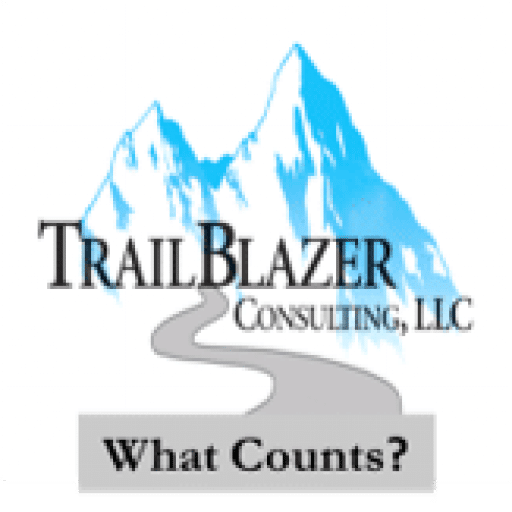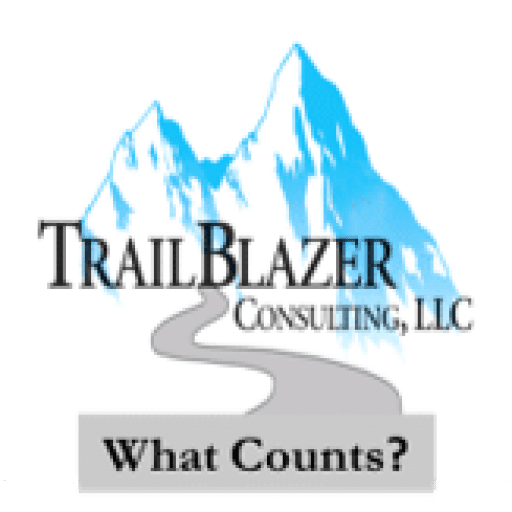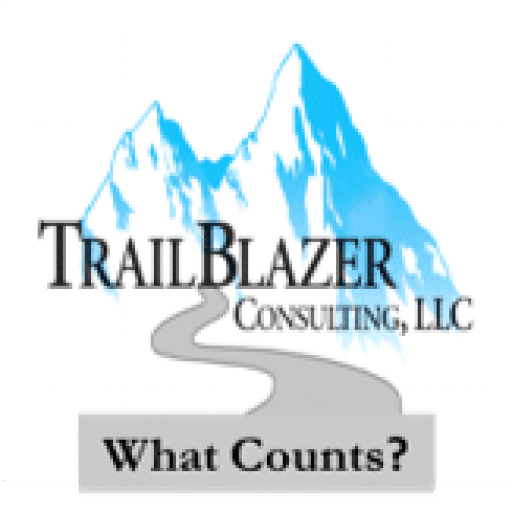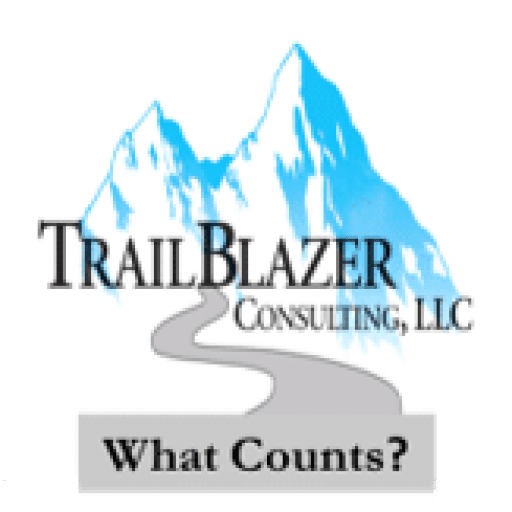[00:00:01] Speaker A: What to do if your internal project sponsor decides to leave.
[00:00:06] Speaker B: Hello.
[00:00:06] Speaker A: Thank you for joining us. This is what counts, a podcast created by Trailblazer Consulting. Here we highlight proven solutions developed through our experience working with companies across various industries. And we talk about how you can apply these solutions to your company. We share our experience solving information management challenges like creating and implementing a records retention schedule, creating an asset data hierarchy, or helping with email management. This is Lee, and in this episode, Warren and I will talk about how different things can be after a change occurs with your project sponsor.
[00:00:41] Speaker B: More.
[00:00:41] Speaker A: This is a big thing.
So there's some items here that I think we need to discuss because, you know, your project could go in a very different direction. How do you feel about all this?
[00:00:55] Speaker B: So, channeling our listener who might be an internal information governance person. You've been working really hard and you've been collecting, you've been making progress. You had a vision, and you got people on board. You built some consensus. And then you might feel like the rug has been pulled out under you from under you. Because a key person in your support group, not to get too off track, but the people who've been supporting your vision for where information governance is going to go at your company, one of them leaves. And if it's your executive sponsor, the person who took on helping you ask for the money to get the project done, helping you get support from other executives, and having hard conversations with other executives like, yeah, I understand that it would be easier to keep things the old way because then you wouldn't have to think about this. But actually, we need to do it. And it's hard, and I get it, but here's why it's important to the company.
You've been helping your executive sponsor all along by teeing up those conversations, but that person has been having them. So then what happens? That person leaves and you understand, and you might even be happy for them. They're going on to something exciting, and you wish you could go, too. But you're committed to your company and you're committed to your job, and you also are partway through this journey, and you want to see it to the end.
So now what?
Don't just give up. You can't just give up. But if you think back to some of our earliest episodes, from the very beginning, we've been talking about how information governance is about people. It's about understanding how people interact with information at your organization. How do they use it? How do they produce it, how do they store it? Do they share it? Or do they have a tendency to hoard it.
And you have spent a lot of time figuring this out for yourself in your company and getting help talking to people, because you can't solve an information governance problem just by looking at data. Looking at records. That tells you part of the story, tells you content, it tells you structure, tells you age and other properties about the data, the data or the files. But it doesn't tell you why. It doesn't tell you why did this document get created? Why did it go through 50 versions? Who was involved in it and who finally approved it? And how did it move forward? How was this decision made? You're getting that, all that context, which is critical to the records management part of information governance, to understand what was this content or data or file created for? As part of documenting your business and providing evidence of your transactions and your decision making, you have to talk to the people, and you've been doing that. So hopefully you were successful in gathering a network of champions and sponsors and not just one person that you depended on. And so a change is still big, but you should have a couple of other people in the wings, people who've been working with your sponsor all along.
What if none of those people, what if you have four great people? You're in a big company, you've got a good champion network of ten or twelve people, you had a great sponsor, and you've got four critical senior leaders who understand what's happening. But what if none of them ends up being the new sponsor? They don't get that job. They're not in that line of the business, they're in a different part of the business and they've been partnering with you.
Does that happen? What do you think, Lee?
[00:04:44] Speaker A: Oh, that happens. And you kind of, I think you got to depend on your groundswell. And what I mean by that is you've created the liaison network, right, that are helping you out in their own departments, build little information governance, taking your policies, implementing them and so forth. And you need to depend on that to kind of see where you can find the next champion, see what rises to the top. It's important.
[00:05:16] Speaker B: It is important. And it's, and it's, I think that's a great idea. You've got, you're not doing just one thing at a time in the world of information. You've got a lot going on. You've got liaisons, you've got your champions in different part of the business, and they will help you. They will help you with this new person who maybe got thrust into a role that they didn't know. They didn't really know. They didn't really understand. They weren't part of it before.
Now they have to figure out how that fits into their vision of their new role. And your job, it's not quite back to the beginning. You're not quite back to starting over because you've already got the ten or twelve people. You still got ten or eleven of them left. You've made progress. But it might be a good idea to put together a presentation for the new person and say, here's what we were planning, here's where we were going, here's where we started, here's how far we've gotten, here's what comes next. These were the things that we had identified together. It's not just me. It's also these other senior people that are on my support group. Maybe they're part of the meeting or maybe they're in a subsequent meeting so that you can show the progress and show the vision. Where is it going next? But there will probably be changes. It's probably, you know, the new person is going to have their own vision.
It's going to be more or less important for them. And so when you're making the presentation, it's got to be a two way thing. Here's what I've been thinking. Here's what I've been working on.
From your perspective, new leader, what's your plan? What do you think? What do you think about this? Do you have questions?
[00:06:55] Speaker A: I think you're absolutely right. I think the presentation is a key piece. Like any project, if you get new members on the team, you should do a mini reorientation of that project to make sure that everyone's on the same page. Don't just assume that they know exactly what's going on and they can start running right away. Right. You have to take your time and educate them and give them a little bit of training of where you've come, where you are and where you want to go. So I definitely think the presentation is a key piece. The other thing is, is that we can relate it to our information governance framework, right? We have governance on the top. You have the silos of applications and the data on policy and then infrastructure and so forth. And what I'm getting at is we've done a percentage of completeness slides where we filled up each one of those pillars and so forth to show people the progress of this project of information governance at your company.
[00:08:00] Speaker B: I think that's a really good idea. And something you said made me have this thought, which is don't wait for this kind of change to start presenting. Show the point, keep track and make those regular presentations, not just to the sponsor, but also to your little champion network, your close in champion network, and to the broader leadership of your company. Here's what information governance has been doing this year. You might remember that last year we were only at 20% on policy, but now we're at 80 because we wrote these three policies and we implemented them. Or last year we were very low on the infrastructure and content pieces, but this year we managed to pull off a massive cleanup effort of the electronic information that we brought in from those last two acquisitions. And that was huge.
So I think that constant reassessing, not like everyday overthinking, but routine reassessing of are we still going in the right direction, what have we done and what's next? And sharing that information, because one of the dangers of just focusing in on the data is people forget about you. You're kind of out of sight, out of mind. You're, oh, down there talking to those boxes. Even if you haven't touched a box in ten years because it's all electronic, people still hear the word record and think, dusty box in a basement. So I like that approach, actually, that ongoing assessment and progress reporting out, and it gives you a good opportunity to think about. I had these three steps in mind. I've done two and I've done two of them and I'm ready for the third one. But this other thing came up and actually maybe I need to pivot. And so instead of just marching blindly on the plan that I did two years ago, let me take everybody's pulse on this. Let me see if we're still going the right way.
[00:09:58] Speaker A: Well, I think in collaborating with senior leadership, if you can get into the right circles, that's the wrong way to put it. But if you could get to, let me just use an example. So we were brought in with the CEO and the CFO in a different particular company, and we stated exactly where the information governance program was and where it going and the progress, like you're saying. And they had other ideas that they wanted incorporated from other parts of the company that we really didn't have a vision into because we weren't that high up in the organization. And they are. And so they start to broaden your perspective, and that helps tremendously.
[00:10:45] Speaker B: It does. And it gives you the opportunity to have the CEO and CFO say, yes, this is a great idea, or actually, no, this is not a priority for us this year. And while that is disappointing, it's better to know that before you try and make a big play for a budget and it makes you part of the team, you're not an afterthought. You're part of. Where's this company going?
[00:11:10] Speaker A: Yeah. So don't fret if you lose your project sponsor, hopefully you have other connections that you've made. But at the same time, I think you need to do the progress reports and get them out there in a greater. So a greater audience could see it. And you're going to get attention.
[00:11:26] Speaker B: Yeah.
[00:11:27] Speaker A: It's an important subject.
[00:11:28] Speaker B: Expect change. You're going to. We should expect change. It's not always going to be that same sponsor. No matter what, something's going to, something will happen. So expecting the change, documenting and communicating and garnering support and being ready to move, ready to pivot if you need to pivot is a great way to make your.
To grow your information governance project into a program. So you keep going.
So. Okay. I feel a little better about that blow I was feeling at the beginning of this discussion about losing an executive sponsor. And now what? How about you, Lee?
[00:12:06] Speaker A: I feel great.
I think there's decisions you need to make along the way, no matter what happens.
[00:12:15] Speaker B: Yeah. I just keep thinking this thing keeps running through my head about when you start a business, they tell you the first thing you should think about is how you want it, what's your exit strategy going to be? And that seems so weird, right? Like I'm starting everything. It's all brand new. Of course I'm going to keep going forever. But the point of that advice is things change and you have to be able to absorb change and react positively and move forward. And I think it's the same thing for an internal information governance program. You've got to think about where's the whole business going and what does that mean for you?
[00:12:54] Speaker A: If you have any questions, please send us an email at
[email protected] or look us up on the web at www.teailblazer.us.com. Thank you for listening and please tune in to our next episode. Also, if you like this episode, please be a champion and share it with people in your social media network. As always, we appreciate you, the listeners. Special thanks goes to Jason Blake, who created our music.
[00:13:20] Speaker B: Thanks everyone. Thanks, Lee. Until next time.



